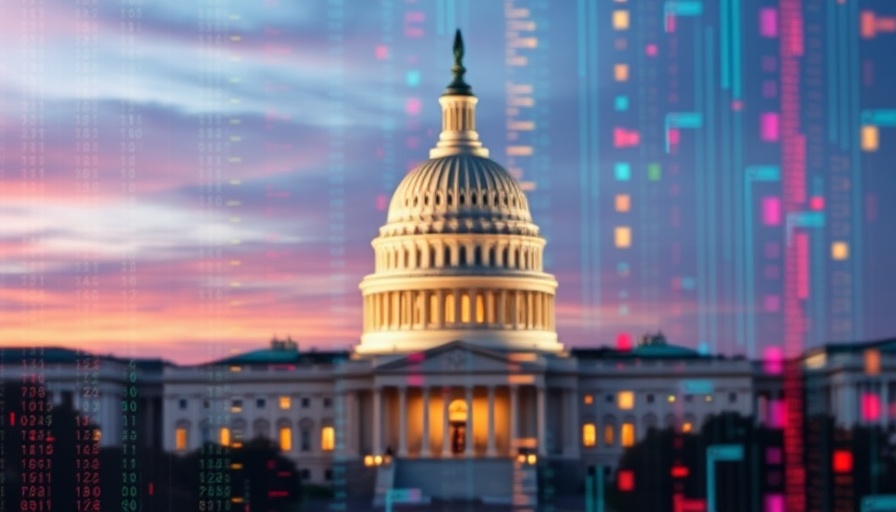
AI and Government Oversight: A Critical Intersection
The House Oversight Committee recently escalated their scrutiny of Elon Musk’s Department of Government Efficiency (DOGE) by demanding answers on the agency's integration of artificial intelligence in federal operations. Fueled by reports about DOGE's ambitions to automate government tasks using proprietary AI tools, these inquiries come amid broader concerns over government transparency and data security.
The Background of DOGE's AI Initiatives
In recent months, sighting a push for organizational efficiency, DOGE has been attempting to leverage advanced AI technologies across multiple federal agencies. According to documents acquired by Wired, this includes a proprietary chatbot known as GSAi, purportedly implemented to assist around 1,500 federal employees. This wave of AI adoption is not just about improving service delivery; it also raises profound questions about ethical standards and the safeguarding of sensitive government data.
Concerns Over Data Privacy
As noted in the inquiries from the Oversight Committee, there are pressing worries regarding the handling of personal information by DOGE. Congressman Gerald Connolly highlighted that the deployment of such AI technologies without stringent oversight could potentially undermine public trust in government. With federal agencies bound by various statutory requirements like the Advancing American AI Act, any misuse of data could lead to violations of legal and ethical standards.
The Financial Implications of AI for Musk
Public Trust and the Ethics of AI in Government
The tension between automation and accountability has never been more pronounced. The Democrats’ request emphasizes the critical need for transparency as agencies explore AI tools. The American public is rightfully concerned about the implications of trusting sensitive data in the hands of third-party AI systems without a clear framework to ensure its security.
Potential Roadblocks and Legislative Responses
Despite the fervor of the inquiry, there are significant hurdles for Democrats aiming to implement change. The Republican-led committee may block any meaningful action, sidelining the Democrats’ resolutions that seek to investigate Musk's connections to the federal government. This political impasse serves to underline the divisive landscape surrounding technology and governance in the current climate.
Understanding the Future of AI Utilization in Government
Given the rapid advancements in AI, considering both the technological and ethical implications is critical for the future. As governing bodies like DOGE pursue innovation, they must remain vigilant against compromising public trust. Moving forward, establishing robust regulatory standards could safeguard against potential misuse of AI technologies.
It’s clear that as AI continues to permeate public sector practices, ensuring accountability and transparency will be paramount to protect the interests and data of all citizens. The inquiries into DOGE are just the tip of the iceberg in a broader discourse on how Artificial Intelligence can—or should—be integrated into government functions while preserving ethical integrity.
To stay informed about the unfolding story and its implications for AI in public governance, subscribe to our newsletters for updates.
 Add Row
Add Row  Add
Add 




 Add Row
Add Row  Add
Add 

Write A Comment